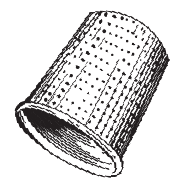First, dab balm on the pale, chapped lips.
Next, offer a sip of water from a straw.
Then, spoon the soup gently into the
trembling mouth: chicken soup, but not
the kind they serve in this country, heated
straight from a can that Warhol had passed
off as art: the noodles—soggy short strips or
floating alphabets no oracle could interpret;
the diced carrots—a bright orange, yet long
dead and dissolving; the tidbits of chicken
—hydrated sawdust. No, that just won’t do.
She came here eons of moons ago—
more girl than woman, with cheekbones
so high they pushed her eyes into upside-
down melon wedges when she smiled—
from that ancient land that had invented
noodles, where the cooks lost their heads
if the emperor’s meal failed to match the
divinity of his pedigree; chose herbs and
spices to enhance the flavor of meats, not
mask their decay; poached vegetables
only enough to be kind to rotten and
missing teeth—yet firm, not overcooked.
They said she was dying. So I prepared
tinolang manok from my Motherland:
the soup that mothers feed their sick
children—guaranteed to raise the near-
dead back to life; its secret: ginger—
that freak, grotesque root of immortality,
sautéed with potent garlic, onions; and
green papaya—sure to flush out toxins;
and the leaves of the pepper plant, which
would relight the pilot flame of the spirit,
slow-burning it into ethereality; and, finally,
the pièce de résistance: tender chunks of
the sacrificed fowl’s meat—dark, the muscles
nearest the bones rich with marrow and the
veins that carried the lifeblood of the bird:
flightless, except when it had to fight for its life.
We were friends for many years but
with few, brief encounters—cut to
the core of our shared orphanhood,
our loss of everything maternal: mother,
motherhood, mother tongue, motherland.
Today, as I visit her—possibly, for
the last time—I feed her as a mother
bird to her chick: a masticated feast
for the soul, passed on lip to lip.


